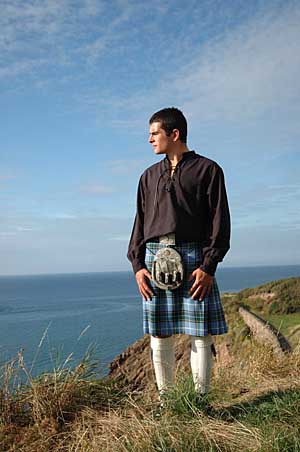A) Julie would need to brush Molly's teeth as well as the dog's.
B) Julie would need to brush Molly's teeth as well as the dogs'.
C) Julie would need to brush Molly's teeth as well as the dogs.
 |
| Photo: kingwestvets.com |
In A), there is one dog, and Julie needs to brush his teeth.
In B), there are at least two dogs, and Julie needs to brush the teeth of both (or all) of them.
In C), there are at least two dogs, and Julie can put the toothbrush away, because it's not their teeth she needs to brush, but the dogs themselves.
The key:
- The apostrophe (') and 's' together show possession. Together they indicate that something belongs to someone. (The apostrophe also has one other function in English, and we'll get to that.)
- If the apostrophe comes before the 's' then there is only one owner (or at least, only one owner mentioned). This is called a singular possessive. Some examples: Mary's dollhouse, the resident's home, the dog's teeth.
- If the apostrophe comes after the 's' then more than one owner is being mentioned. This is called a plural possessive. Examples: the girls' dollhouse, the residents' home, the dogs' teeth.
- Sometimes the thing that's owned has already been mentioned and it's not necessary to state it again. For example, you wouldn't say, "When you've filled the horse's water bucket, go ahead and fill the donkey's water bucket and the llama's water bucket." You'd say, "When you've filled the horse's water bucket, go ahead and fill the donkey's and the llama's." In our original examples, both A) and B) contain the understood word 'teeth.'
- If there's no apostrophe, then there's no possessive. In C), Julie simply would need to brush Molly's teeth, and also brush the dogs. The dog's teeth are not the object here: the dogs are.
The grocer's apostrophe:
What about sentences like these?
- This weekend only, potatoe's are only $1.00 a pound.
- Check out our new shipment of fruit's and vegetable's.
Sorry, but they're incorrect. These are simple plurals, not possessives (more than one potato, more than one fruit, more than one vegetable, and they don't own anything) so the apostrophes shouldn't be there. This error is so common in grocery stores that it has come to be known as the grocer's apostrophe (or the grocers' apostrophe - nobody seems to know how many grocers there are).
Exceptions:
The exception to rule #1 above is for irregular plurals such as children, men and women. In these cases, the apostrophe will come before the 's' but the word will still be plural:
- Child's: belonging to one child. Children's: belonging to more than one child.
- Man's: belonging to one man. Men's: belonging to more than one man.
- Woman's: belonging to one woman. Women's: belonging to more than one woman.
The exception to rule #5 is the word its. To prevent confusion with the contraction it's (short for it is), the possessive its (belonging to it) is spelled without the apostrophe.
Other uses for apostrophes:
The only other official use of the apostrophe in English is to show where something was left out. Usually you'll find them in contractions (didn't, hadn't, that's, he'd, etc.), but sometimes they're used in dialogue to help show how someone speaks (he's bigger'n me, peaches 'n' cream).
Unofficially, the apostrophe is often used to indicate a glottal stop, especially in casual transliterations of foreign words. The glottal stop sounds a lot like a hiccup, and can be found in the middle of 'uh-oh'.
If you want to know more about that, I have some Sco'ish friends who are experts a' the glo'al sto'p.
 |
| Photo: your-kilt.com |

No comments:
Post a Comment